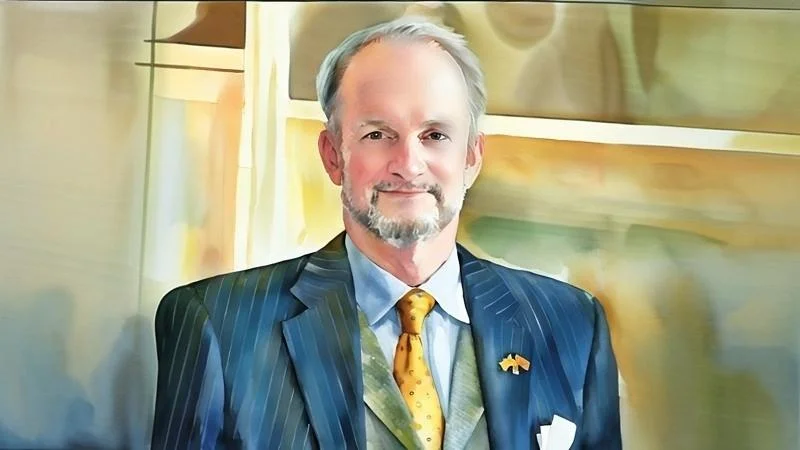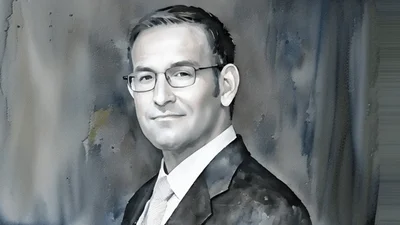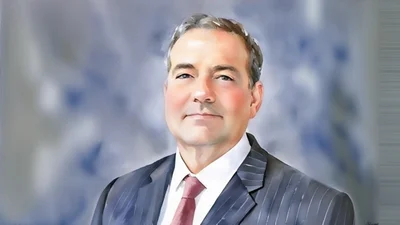In Russia’s war on Ukrain, missile strikes level schools and hospitals while Europe and the United States weigh aid, sanctions, and the path to peace. Former U.S. diplomat Gregory Slayton says, in this war, clarity matters and argues for peace through truth over propaganda.
Slayton is a former U.S. diplomat, chairman of Slayton Capital, and chairman of Family First Global, a faith-based nonprofit operating in “difficult” environments. He was an early investor in Google and Salesforce and is the author of Portraits of Ukraine: A Nation at War. He recalls speaking to Ukraine’s Parliament years before the full-scale invasion and later coordinating relief. “We helped deliver about 17 million pounds of relief supplies from our base in Poland into the war zones,” he says, crediting a partnership of small faith-based groups. The book funded “good Ukrainian charities” and assembled “hundreds and hundreds of footnotes” to counter disinformation.
The stakes, according to him, begin with truth. “The Kremlin spends at least $1.2 billion a year on disinformation,” he says. The book sought to correct claims that erased Ukrainian identity. “Putin says Kyiv is founded by Russians; it’s the exact opposite. Moscow and Saint Petersburg were founded by people coming up from Kyiv a thousand plus years ago.” Reviews and endorsements followed, he says, because the work documented history across culture, people, invasion, and strategy. “We can’t make good decisions in the absence of truth,” he says.
Motivation flows from “first principles,” according to him. “I believe this is the fight of everyone who believes in freedom, democracy, and the rule of law,” he says. He rejects narratives that sanitized authoritarianism. “There is no religious freedom in Russia,” he says. “We documented hundreds of Ukrainian churches and synagogues destroyed or locked up, and clergy put in jail in occupied territories… that number is over 700.” The pattern extended to speech and assembly. “Go to Moscow and speak against Vladimir Putin,” he says. “You’ll be taken by the police and sent to the gulag, or worse.”
Strategy, he says, couples deterrence with coalition pressure. “Peace comes through strength. Begging dictators never works.” He agrees with European defense investment and underscored America’s role without U.S. combat deaths. “How many American soldiers died in this effort? Zero,” he says. “The Ukrainians are doing the work on our behalf and on behalf of all democracies in greatly weakening Vladimir Putin.”
Policy tools sit at the center of his roadmap and he cites a bipartisan Senate push for tougher sanctions and described House support. “We have 85 Senate co-sponsors,” he says. “We also have a veto-proof majority in the House.” He urges sharper enforcement against Russia’s energy lifelines. “India and China together import 80% of Russia’s crude oil,” he says. “Russia uses a shadow fleet… we need to shut that down.”
Escalation management still matters, according to Slayton. He backs Ukraine’s ability to hit legitimate targets. “Ukraine never targeted civilians,” he says. “Putin’s forces double-tapped a children’s hospital to cause the largest number of civilian casualties… they did that all the time.” New Ukrainian long-range capabilities, he says, could change incentives. “I’m thrilled that Ukrainians now have the capacity to fire long-range missiles at military installations. Hopefully this dramatically weakens the Russian war machine.”
Ceasefire mechanics formed another pillar, he says. “A ceasefire is important because too many people are being killed and wounded. President Zelensky agreed immediately; Putin opposed it because he kept throwing men into a meat grinder.” He points to civilian trauma and young amputees receiving prosthetics through charities he supported. “The wounds and deaths among civilians are huge,” he says.
Slayton also says partners outside Europe matter, and he frames India’s position as pivotal. “Modi needs to decide now. There’s no straddling the fence… the long-term future for India is brighter siding with the West.” Discounted Russian oil might tempt, he says, but alliance structure and Chinese pressure say otherwise. “We don’t want a world where the powerful and aggressive take whatever they want.”
Postwar planning, according to him, would require stamina. “We must secure a just and lasting peace. Giving Putin six months to rearm is stupidity.” Reconstruction would demand global commitment. “Rebuild costs approach $1 trillion,” he says. “Healing means physical and mental recovery.”









